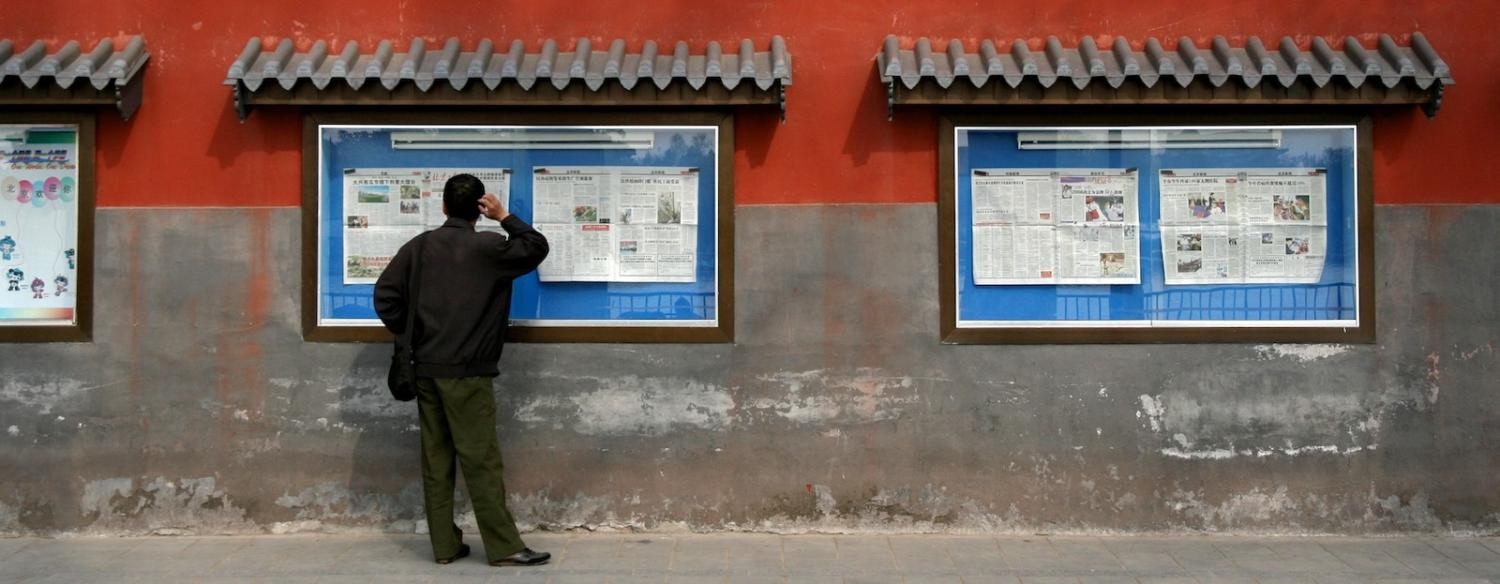Journalists in China are routinely harassed by police and even imprisoned for trying to cover stories that local officials do not want to get in the news.
In 2018, the Reporters Without Borders World Press Freedom Index, which ranks the performance of 180 countries according to media and journalist independence, listed China close to rock bottom at number 176.
It was newsworthy, then, that the Quanzhou Public Security Bureau issued an apology for police intimidation of Zhou Chen, an environmental journalist with the prize-winning news outlet Caixin, when she attempted to report on a petrochemical spill in the Quanzhou port district of Fujian Province.
Central authorities often allow local-level government corruption or inaction on environmental and other ‘crises’ to be exposed by provincial or national media or media in different regions.
Zhou published an article in Caixin stating that environmental protection and halting pollution are top-level policy issues in China, and although she had rarely been threatened when conducting interviews, she now had first-hand experience of “how lawless and unscrupulous official power can be when it is abused”.
On 11 November, local police stopped Zhou from taking photographs of the Quanzhou Mayor who was responding to villagers’ complaints that the spill had destroyed local fishing farms. She was then tailed by police when she went to see the dead fish at the farms. Later that evening, Zhou was woken in her hotel after four men in police uniforms entered and searched her room without warning, or showing any documents to authorise the search. As the men left, they told the frightened journalist to be careful of her safety.
Earlier that day, Zhou had contacted an official at the local district publicity department with a copy of her interview questions. The official attempted to bribe her with offers of staying in the area at the department’s expense to ensure positive reporting on the incident. It seems Zhou may have been intimidated by the police because she had not accepted the implicit offer of local government and Party officials to “go soft” on the story.
On 20 November, the Quanzhou Public Security Bureau confirmed that officers from the Shanhe Police Station in Quanzhou District had inspected Zhou Chen’s hotel room, and had been investigated and dealt with for not following legal procedures.
The Quanzhou Public Security Bureau subsequently thanked the media and the community for supervising their work.
So is this simply a rare case of a courageous journalist successfully fighting against the Party-state’s inaction and corruption? Not according to the Twitter-like social media platform of the People’s Daily – the official voice of the Chinese Communist Party (CCP).
The People’s Daily upheld the case as demonstrating in action the central leadership’s commitment to using a robust circular system of Party supervision of the media, and media and public supervision of the Party and government, as means to ensure that government authorities protect the environment and people’s livelihoods.
The People’s Daily concluded that the Quanzhou authorities had inadequate media literacy skills: they failed to recognise that they could work with journalists, and through social media to learn more about local community concerns and show how they were responding to identified problems.
The People’s Daily also stated that relevant local authorities should be investigated for failing to recognise that the job of the police is to enforce the law, not to intimidate people conducting their daily work, or to control the lawful provision of public information.
This response clearly aimed to assuage complaints on social media about the incident, which suggested that the Shanhe police had been scapegoated, when the root problem was the Party and the government officials who had directed the police to harass Zhou Chen.
The case highlights the increasing media-savviness of the central government while showing that not all media are created equal.
Central authorities often allow local-level government corruption or inaction on environmental and other “crises” to be exposed by provincial or national media or media in different regions. This is because local authorities are insufficiently powerful to prevent news flow on social media or stop major news outlets from reporting on newsworthy issues.
A by-product is that popular anger about public scandals or sensitive social issues may become trained on local authorities rather than the central government or CCP leadership.
Although deviations from official views on political issues are given short shrift, business publications previously enjoyed somewhat greater freedom – until faltering economic growth and the US-China trade conflict made economic business topics more sensitive.
As a prominent business and financial news media group, Caixin is renowned for pushing boundaries in its investigative reporting and commentary on economic and social policy. Its global reputation is demonstrated by the recent content-sharing partnership established by Caixin and the Australian Financial Review.
Caixin’s reputation partly rests on the political acumen of its editors, including celebrated former editor-in-chief, Hu Shili, whose own media career began in a state-run newspaper, the Workers’ Daily.
But the Quanzhou case also hints at the delicate calculations and constraints that frame journalistic freedom in China.
Criticism is tolerated when it is appropriately targeted and so long as journalists form an essential pillar of the CCP’s vision of collective supervision by Party, government, and media to curtail abuses of public trust.

